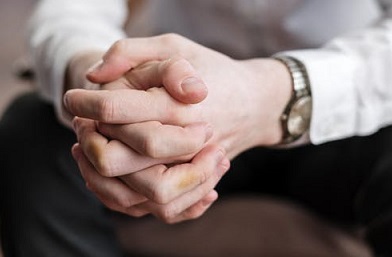Chlamydia Positive in Men — What's That?
Date:2021-09-11 click:0
Positive chlamydia in men often indicates a genitourinary chlamydial infection. About 30%-50% of non-gonococcal urethritis in men is caused by chlamydia. Patients with non-gonococcal urethritis often have an itchy urethra, urethral discomfort, or a thin discharge from the external urethra.
What exactly is chlamydia? The human body is not sterile, and more than 20 microorganisms live in the male urethra and female vagina alone. These microorganisms are good and evil, and they restrain each other to form a balance. Once upon a time, chlamydia was classified as a virus, but later it was found to be a class of its own. It is a prokaryotic microorganism more extensive than a virus and smaller than a bacterium. It is spherical, only 0.3-0.5 microns in diameter. It is not motile, chlamydia is widely parasitic in humans, mammals, and birds, and only a few are pathogenic.
If chlamydia is not treated early or cured completely, it may eventually cause patients to suffer from various genitourinary diseases and affect fertility. For the treatment of chlamydia, Western medicine generally uses antibiotics. Still, although antibiotics can be effective, the percentage of cases that can completely cure the symptoms of chlamydia is not high. Moreover, if antibiotics are used for too long or too much, they can make the chlamydia pathogen-resistant and drug-resistant, and eventually, the antibiotics may even fail.
Therefore, when men are infected with chlamydia, they can take herbal medicine Diuretic and Anti-inflammatory Pill, whose main ingredients are herbs and do not produce resistance or drug resistance like antibiotics do. Chlamydia infection is very harmful to the human body. Tested positive for chlamydia patients must be treated on time. Herbal medicine is a good choice. The antiseptic power of diuretic and anti-inflammatory pills is extreme. It can kill harmful germs in the body to achieve the effect of anti-inflammatory and bactericidal, effectively curing chlamydia.
The body itself has an excellent immune system. They protect the body from a variety of microorganisms, maintaining our health. Not everyone will develop the disease after infection, even for a few highly pathogenic microorganisms (virulent infectious diseases). That is, in general, living in the same environment, only a few people will get sick. Often, they are at the same time a decline in health. Resistance is low. In sexually confused groups, because they tend to have a high frequency of sexual intercourse, the sexual organs are in a state of chronic congestion. This makes their sexual organs less resistant to pathogens, and they are more prone to mycoplasma and chlamydia infections and non-gonococcal urethritis than ordinary people.
It would be nice if it were possible to "get it out of the body before it starts," but in most cases, this is not possible. Various microorganisms live in the body that can accompany a person throughout their life. Mycoplasma and chlamydia can be parasitic in ordinary people. They and many other parasitic microorganisms restrain each other (fighting for the 'resources' of the parasitic environment) to achieve a balance so that the number of each other is controlled and does not affect the human body. It is the medical term "flora balance is the medical term "flora balance." If antibiotics are misused, the original "flora balance" will be disrupted, and the number of certain microorganisms will increase dramatically, leading to other infections.
Avoid sexual intercourse until chlamydia is cured. Do not drink alcohol, do not eat spicy food, drink more water. Do the necessary isolation in the family, separate patients' bath towels, washbasins, bathtubs, toilets, etc., are used separately or disinfected after use.
You may also be interested in:
10 frequently asked questions on chlamydia infection
What effects do the chlamydia infection have on men?



